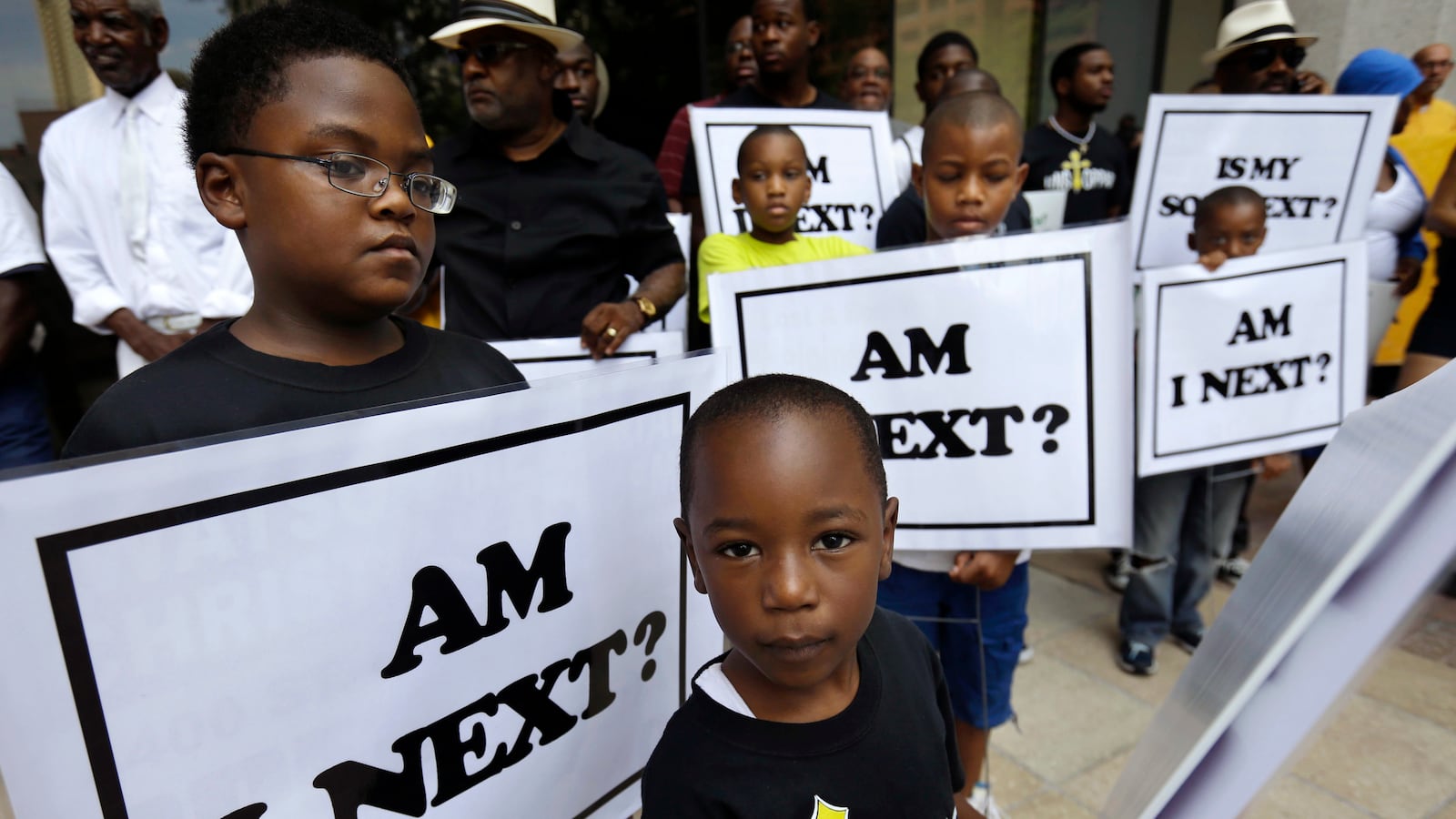
When Juror B37 detailed to CNN’s Anderson Cooper how she and her fellow jurors came to their verdict, we, as a nation, had myriad reactions: some judicial, some moral, and some just plain emotional. It became transparent as she defined her thoughts and understanding of the case that she related most to Zimmerman, the adult armed with a loaded gun, not to Trayvon, the unarmed child on his way home. It was also tragically clear she saw Trayvon only as a color, black, which meant to her and the others a thing, a possible threat, not a person. Were they not mothers? How could they not see and relate to the frightened teenage child who was being followed? We know people see race. But when one person is an adult with a loaded gun and one person is an unarmed teenage boy on his way home in his own neighborhood, one wonders why there wasn’t overwhelming empathy for the child.
On July 16 at the NAACP, Attorney General Eric Holder spoke about “the conversation” he must now have with his 15-year-old son in the wake of the Zimmerman verdict. He pondered “the conversation” he had with his father about the imposed rules of conduct with police when being black and was saddened this chain of “the conversation” from father to son has not been broken in our racial profiling America. His words were raw, personal, and sadly familiar to me and many other parents of color. Last night I took the opportunity to spend time with my son watching the animated foolery on Fox. Watching him laugh at the Family Guy’s toilet humor comforted me. I don't know what I would do if that goofy laughter was somehow lost.
But “the conversation” used to be only limited to the police; now we must include every vigilante citizen with gun. Holder questioned and cautioned the expansion of the self-defense laws known as “stand your ground” laws, which are now in place in over 20 states. Holder declared that we didn’t have to add or expand self-defense laws; they were already sufficient. New York Mayor Michael Bloomberg has also warned against “stand your ground” laws, but continues to support “stop and frisk,” which embraces not only racial profiling but recovers proportionally very few weapons and reaps higher rates of police brutality toward people of color. Eighty-seven percent of New Yorkers stopped are black or Latino. Only 1.3 percent of last year’s stops resulted in the discovery of a weapon of any kind. Six percent of the stops resulted in arrest.
“‘Stop and frisk’ is an extreme example of racial profiling and segregation,” said Maria Elena Torre, the founding director of the Public Science Project at the CUNY Graduate Center. “It's a policy that effectively targets communities of color by restraining their ability to congregate or move about freely, all in the name of ‘community safety.’ But who is safe? In 2011, the NYPD stopped 4,882 people in our majority black and Latino neighborhood in the South Bronx as compared less than half that (2,135) in the similarly sized and populated East Village. And even though more weapons and contraband were discovered in the East Village, more than double the amount of physical force was used in stops in the South Bronx.”
Torre wondered: “In America, it’s not supposed to be a crime to be who you are. Yet given these facts, what are we supposed to tell our children?”
It is imperative our voices continue to be raised pushing through all obstacles telling us otherwise. We must continue to fight to change “stand your ground” and “stop and frisk” for their illegal use of racial profiling, which the Supreme Court has already ruled is unconstitutional. The peaceful protests and demonstrations for Trayvon that cry “no justice, no peace” in the streets across our states are an effective and emotional tool for change. Their disciplined, dignified, graceful nature honors the good fight.
Only days ago, in concert in Limerick, Ireland, Bruce Springsteen dedicated his song “American Skin (41 Shots),” written about the 1999 shooting of Amadou Diallo by four plainclothes New York City police officers, “as a letter back home ... for justice for Trayvon Martin.” As the song puts it:
Well, is it a gun, is it a knife/Is it a wallet, this is your life/It ain’t no secret (it ain’t no secret)/No secret my friend/You can get killed just for living in your American skin.
The song is hauntingly applicable again. The wallet could’ve been Trayvon's Skittles and iced tea. In a real sense, we have all been again baptized in the blood of Trayvon Martin.






